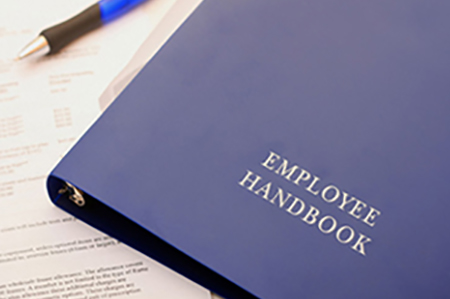Rules Regarding Confidentiality
Employees have a Section 7 right to discuss wages, hours, and other terms and conditions of employment with fellow employees and other nonemployees, including union representatives. The confidentiality provisions of employee handbooks can thus violate the law if not artfully prepared. Rules prohibiting the discussion of the “terms and conditions of employment” are not allowed, while rules that prohibit the disclosure of legitimately confidential employer information are acceptable.
The following is a sampling of the confidentiality rules deemed unlawful:
- Do not discuss customer or employee information outside of work, including phone numbers and addresses. The prohibition of disclosing “employee information” was impermissible.
- If something is not public information, you must not share it. Again, this prohibition is too broad and thus unlawful.
- The following is a sampling of the confidentiality rules deemed lawful, as each did not reference employee information, were not overly broad, and did not contain language that would reasonably be construed to prohibit Section 7 communications:
- Unauthorized disclosure of “business secrets” or other confidential information.
- Do not disclose confidential financial data, or other nonpublic proprietary company information. Do not share confidential information regarding business partners, vendors or customers.
Rules Regarding Employee Conduct Toward the Company and Supervisors
Employees have a Section 7 right to criticize or protest their employer’s labor policies or treatment of employees, both while at work and in the public forum. While rules banning “insubordination” are generally permissible, rules that amount to a blanket ban of “disrespectful,” “negative,” “inappropriate,” or “rude” conduct toward management might be unlawful, depending on the context. By contrast, the same language aimed at employees’ conduct toward co-workers, clients, or competitors is lawful because employers have a legitimate business interest in having employees act professionally and courteously toward non-management individuals, subject to certain caveats discussed below.
The following is a sampling of rules dealing with management deemed unlawful:
- Be respectful to the company, other employees, customers, partners, and competitors.The inclusion of “the company” made this rule impermissible.
- Refrain from any action that would harm persons or property or cause damage to the company’s reputation. The report maintained that this rule (and others like it) was unlawfully broad because it could be reasonably read to require employees to refrain from criticizing the employer in public.
By contrast, the following were lawful:
- No “rudeness or unprofessional behavior toward a customer, or anyone in contact” with the company. Again, this is acceptable because it did not mention “management” or “the company.”
- Each employee is expected to work in a cooperative manner with management/supervision, coworkers, customers, and vendors. Here, the emphasis of the rule is the performance of the employees, as opposed to the communicative components of employment. It was thus permissible.
Rules Regarding Employee Conduct Toward Fellow Employees
In addition to employees’ rights to discuss their terms and conditions of employment and/or criticize their employers’ labor practices, employees also have a right to argue and debate with each other about unions, management, and the like. Thus, when an employer bans all “negative” or “inappropriate” discussions among employees, without further clarification, such rules can be reasonably read to prohibit discussions and interactions that are protected.
The following is a sampling of unlawful “employee-employee” conduct rules:
- Don’t pick fights online. Far too broad.
- Show proper consideration for others’ privacy rights and for topics that may be considered objectionable or inflammatory, such as politics and religion. Discussion of unionization would likely be chilled by this rule because it can be an “inflammatory” topic.
- Do not send unwanted, offense, or inappropriate emails. This rule was too vague and overbroad.
By contrast, the following were lawful:
- Do not make inappropriate gestures, including visual staring.
- Threatening, intimidating, coercing, or otherwise interfering with the job performance of fellow employees or visitors. This simply requires that employees be respectful and cooperate with their co-workers.
- No harassment of employees, patients, or facility visitors. Harassment is distinct from contentious communication.
Rules Regarding Use of Company Logos, Copyrights, and Trademarks
Though copyright holders have a right to protect their intellectual property, company rules cannot prohibit employees’ fair protected use of them. The easiest example of this is an employee’s right to use company logos on picket signs, leaflets, etc.
The following is a sampling of rules deemed unlawful because of over-breadth:
- Do not use Company logos, trademarks, graphics, or advertising materials in social media
- Company logos and trademarks may not be used without written consent.
By contrast, this rule was lawful as it simply requires employees to respect copyright laws:
- Respect all copyright and other intellectual property laws. For the employer’s protection as well as your own, it is critical that you show proper respect for the laws governing copyrights, fair use of copyrighted material, owned by others, trademarks and other intellectual property, including the employer’s own copyrights, trademarks, and brands.
Last Updated on April 18, 2017 by The Orlando Law Group








